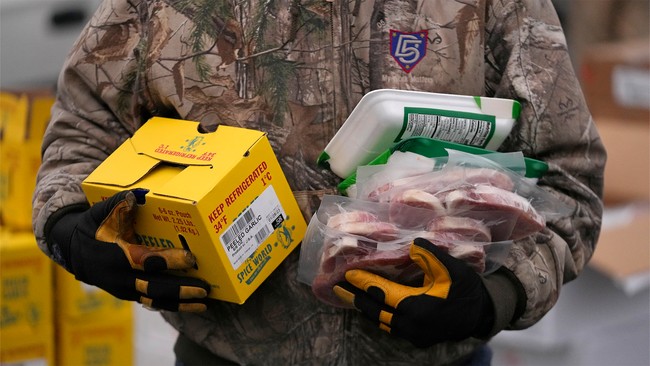Feel-Good Friday: Americans Step in and Step Up to Give Neighbors Hope During Government Shutdown
- Community groups and food banks are filling gaps left by the shutdown.
- States and neighbors are expanding local aid while SNAP pauses.
- Personal charity is rescuing people caught in bureaucratic delays.
- These stories reveal both the strain on systems and the strength of Americans.
As the government shutdown drags on, ordinary Americans are absorbing the fallout while Washington squabbles. When federal systems stall, neighbors and local groups step into the breach and produce actual solutions fast. This week’s good news check highlights that messy but effective civic response.
In Mississippi, 13 percent of residents rely on SNAP and many of them are working families, caregivers, and disabled citizens who can’t afford a benefits gap. The food relief group Extra Table is doubling distributions to its 66 pantries to blunt the expected shortfall starting November 1. Local action like this shows charity can move faster than bureaucrats when people need help.
WATCH:
Hattiesburg, MS, Mayor Toby Barker said it best: “The shutdown is a reminder that the community must come together to support one another.”
Community support should be more than a backstop for government failure; it should be the default for neighbors in need. Utah and Kansas, with lower SNAP dependency, are also expanding food bank and farmers network help to cover more families. For more state-by-state reporting, see the coverage here.
Down in Florida the state re-employment system is collapsing for some people, and one woman’s story puts a human face on the failure. Lena Hoti waited months for a decision and risked eviction as the clock ticked down. Local reporting spurred community help and a wider conversation about agency dysfunction.
A Port St. Lucie woman faces homelessness after waiting five months for Florida’s Department of Commerce to determine her eligibility for unemployment benefits, highlighting ongoing systemic issues with the state’s re-employment assistance program.
Lena Hoti was laid off from her hotel housekeeping job about five months ago and applied for Florida’s re-employment benefits in June. Despite weekly visits to her local CareerSource center in Fort Pierce, where staff connect her directly to the Florida Department of Commerce, she still hasn’t received a decision on her claim.
“I’ve been waiting five months for them to decide whether I’m going to get these benefits or not,” Hoti said. “Nobody can really give me a straight answer. And it’s kind of frustrating.”
I know how fragile a single person’s finances can be, and systems that fail people like Lena are an urgent problem. With limited safety nets, private citizens and local groups stepped in to fill the gap and buy time. Those acts of kindness make real differences while policymakers argue about blame.
Florida’s re-employment benefit is capped at $275 per week. For Hoti, who rents a bedroom from a family in a Port St. Lucie apartment, that money represents a crucial lifeline.
“I need to pay my rent, and if I don’t have this money, I’m going to end up on the street,” Hoti said.
She has about two weeks before she must vacate her current living situation.
“I’m looking for shelters or anything, but there’s really nothing in this area,” Hoti said.
Fox 29 and WPTV ran the story, and after viewers saw Lena’s situation one anonymous donor offered to cover her rent. WATCH:
Her car broke down, she relied on friends for rides, and food banks provided groceries while she waited on a decision. The anonymous benefactor told WFLX News they felt compelled to act despite not being wealthy, and their gift bought Lena breathing room. Small acts like this often unlock the stability people need to find new work.
Americans give generously both individually and through institutions, and those impulses are on display here. The donor’s words summed it up: “It just really hit me hard. And I was like, I felt compelled to want to try and do something to help her,” said the viewer, who asked to remain anonymous to avoid potential scams. “Unfortunately, with the … climate in the world today, good deeds, I believe, can get transformed into something bad for the person who’s trying to do good.”
“I’m not wealthy by any means. But when I looked at my finances and I was like, I am comfortable enough that I can do something for somebody else,” the donor said.
The gesture gives Hoti more than just a roof over her head while she sorts out the ongoing issues with the state.
“Honestly, very grateful,” Hoti said. “It gives me hope that maybe I can. … I think any little bit of kindness any of us can put out there for anybody is worth it.”
That boost also helped clear the path for a job interview, which she had on Wednesday, and community support remains crucial as bureaucracies lag. These stories show resilience and the practical value of neighbors stepping up when Washington falls short.


Leave a Comment